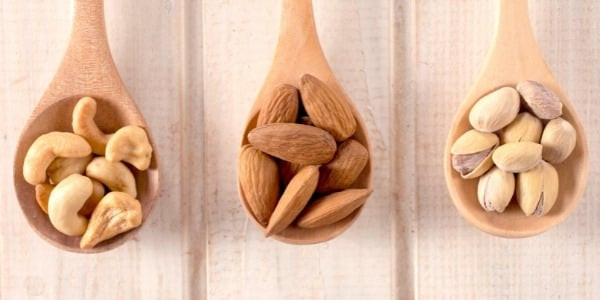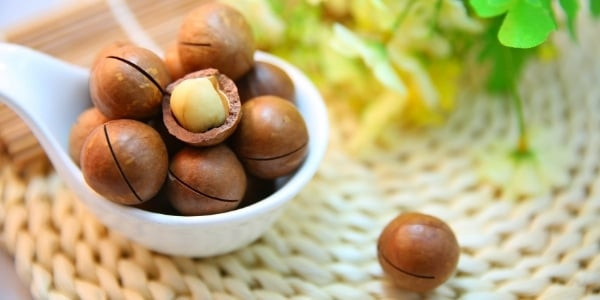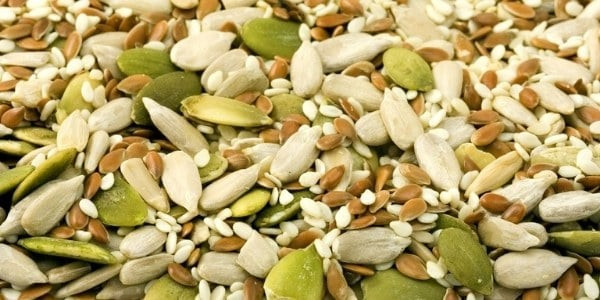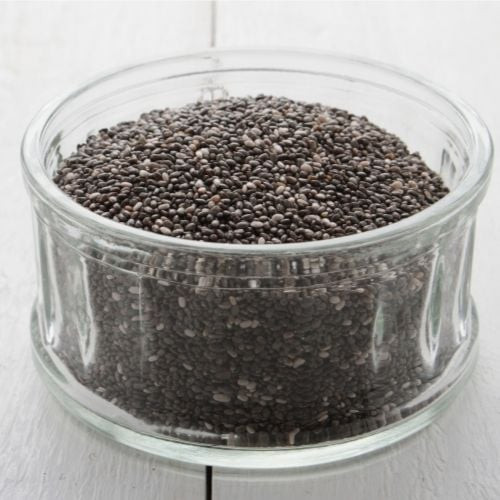We humans often enjoy a handful of nuts as a snack, appreciating their crunchy texture and nutritional value. If you’re a cat owner who loves nuts, you might wonder, “Can I share this tasty treat with my feline friend?” It’s a natural question, especially when those pleading eyes are fixed on your snack.
 nuts that are safe and unsafe for pets
nuts that are safe and unsafe for pets
The truth is, the relationship between cats and nuts is a bit complicated. While some nuts are considered relatively safe for dogs in moderation, the same can’t be confidently said for cats. In fact, nuts are generally not recommended for cats. This is due to a variety of factors, ranging from potential toxicity to digestive issues and choking hazards.
Let’s delve deeper into why nuts and cats might not be the best mix, explore which nuts pose the greatest risks, and understand what to do if your cat accidentally munches on one.
Are Nuts Good for Cats? Understanding the Potential Benefits (and Drawbacks)
While nuts can offer some nutritional benefits for humans and even dogs, the advantages for cats are minimal and are far outweighed by the risks. Let’s break down the supposed benefits and why they don’t really apply to our feline companions:
- Protein Source: Nuts do contain protein, an essential nutrient for cats. However, cats are obligate carnivores, meaning their primary protein source should come from animal meat. Nuts are not a biologically appropriate or efficient way for cats to get their protein.
- Amino Acids: Certain amino acids like arginine, found in some nuts, are important for nitric oxide production and blood circulation. Again, cats can obtain all the necessary amino acids from a high-quality, meat-based cat food.
- Fiber: Nuts provide fiber, which can aid in digestion. However, cats don’t require high amounts of fiber, and excessive fiber can actually lead to digestive upset. There are safer and more cat-appropriate sources of fiber if needed, like pumpkin or psyllium husk, recommended by a veterinarian.
- Vitamins and Minerals: Nuts contain vitamins like vitamin C, B vitamins, potassium, iron, and copper. While these are beneficial, a balanced cat food already provides all the necessary vitamins and minerals in the correct proportions for feline health.
- Healthy Fats: Nuts are a source of healthy fats. However, they are also very calorie-dense and high in fat, which can be detrimental to a cat’s health.
The Downsides of Nuts for Cats:
The potential risks associated with feeding nuts to cats are significant and should not be ignored:
- High Calorie and Fat Content: Nuts are incredibly dense in calories and fats. Even small amounts can contribute to weight gain and obesity in cats, especially indoor cats with lower activity levels. Obesity is linked to a range of health problems in cats, including diabetes, arthritis, and heart disease.
- Pancreatitis Risk: The high fat content in nuts can trigger pancreatitis in cats. Pancreatitis is a serious and painful inflammation of the pancreas, which can be life-threatening. Cats are already prone to pancreatitis, and fatty foods like nuts can exacerbate this risk.
- Toxicity: Some nuts are outright toxic to cats, causing severe symptoms. Macadamia nuts, for example, are highly toxic to dogs and are likely harmful to cats as well, although less research exists specifically for felines. Raw cashews are also considered toxic to cats.
- Choking Hazard and Obstruction: Nuts, especially whole nuts, are a significant choking hazard for cats. Their size and shape can easily become lodged in a cat’s throat, esophagus, or intestines, causing blockages that may require surgery to resolve. Cats tend to gulp their food, increasing this risk.
- Digestive Upset: Even non-toxic nuts can be difficult for cats to digest due to their high fiber and fat content. This can lead to stomach upset, vomiting, and diarrhea.
- Coatings and Seasonings: Nuts intended for human consumption are often coated in salt, spices, or artificial flavorings, many of which can be harmful to cats. Excessive salt intake can lead to sodium ion poisoning, and ingredients like onion and garlic powder are toxic to cats.
- Shell Trauma: Nut shells are hard and indigestible. If ingested, they can cause trauma and damage to the delicate lining of a cat’s gastrointestinal tract.
Nuts to Absolutely Avoid Giving Your Cat
While generally, it’s best to keep all nuts away from your cat, some are particularly dangerous and should be strictly avoided:
- Macadamia Nuts: Highly toxic to dogs and suspected to be toxic to cats. Can cause weakness, tremors, vomiting, and hyperthermia.
- Raw Cashews: Considered toxic to cats. The specific toxic compound is unknown, but they can cause adverse reactions. Roasted cashews are listed as potentially safe for dogs in small amounts, but still not recommended for cats due to high fat and calorie content.
- Walnuts (Black and English, especially old and moldy): Black walnuts are very toxic to dogs and potentially cats, causing neurological issues and vomiting. English walnuts are less toxic but still high in fat and can become moldy, producing tremorgenic mycotoxins that are dangerous to pets. Moldy walnuts are a serious risk for both dogs and cats, causing tremors and seizures.
- Pistachios: High in fat, posing a pancreatitis risk. Their shells are a choking hazard. Often seasoned with salt, onion, and garlic, which are toxic to cats. Can also harbor molds.
- Hickory Nuts: Large and hard, making them a significant choking and intestinal blockage hazard, especially for cats. Moldy hickory nuts contain tremorgenic mycotoxins.
- Pecans: Not directly toxic, but prone to mold growth, similar to walnuts, carrying the risk of tremorgenic mycotoxins. Also high in fat and can cause gastrointestinal upset.
- Brazil Nuts: Not toxic in small quantities, but very high in fat and hard to digest. In rare cases, excessive consumption could lead to selenium poisoning.
 macadamia nuts toxic to pets
macadamia nuts toxic to pets
Potentially “Safer” Nuts (But Still Not Recommended for Cats)
Some lists mention a few nuts as “safe” for pets, usually referring to dogs. These are still not recommended for cats due to the inherent risks:
- Peanuts: Technically legumes, but often grouped with nuts. Plain, unsalted, shelled peanuts are sometimes listed as safe for dogs in very small amounts. However, for cats, they still pose a choking hazard, are high in fat, and offer no real nutritional benefit. Peanut butter is also risky due to potential xylitol content (artificial sweetener toxic to pets) and high fat.
- Hazelnuts: Plain hazelnuts are sometimes listed as safe for dogs in moderation. Again, not recommended for cats due to choking hazards and high fat content.
- Roasted Cashews (Plain, Shelled, and Unsalted): While raw cashews are toxic to cats, roasted cashews are sometimes listed as safer for dogs. However, the high fat content and calorie density still make them inappropriate for cats.
Important Note on Peanut Butter: Many peanut butters contain xylitol, an artificial sweetener that is extremely toxic to both dogs and cats. Always check the ingredient list meticulously. Even xylitol-free peanut butter is high in fat and calories and not a healthy treat for cats.
Symptoms of Nut Toxicity or Digestive Upset in Cats
If you suspect your cat has eaten nuts, monitor them closely for the following symptoms. Contact your veterinarian immediately if you observe any of these signs:
- Vomiting
- Diarrhea
- Loss of appetite or refusal to eat
- Lethargy or weakness
- Abdominal pain (indicated by groaning, panting, or reluctance to be touched)
- Tremors or muscle twitching
- Difficulty walking or uncoordinated movements
- Seizures
- Rapid breathing or heart rate
- Bloody stool (may appear black and tarry)
- Orange-colored urine
What About Seeds? A Quick Look for Cat Owners
While this article focuses on nuts, seeds are often mentioned in the same context. Like nuts, seeds are high in fat and calories, so moderation is key even if they are considered “safe.”
 seeds that pets can have
seeds that pets can have
“Safer” Seeds for Cats (in very limited quantities and prepared properly):
- Chia Seeds: Best soaked in water to form a gel before feeding to prevent expansion in the stomach. Offer in very small amounts.
- Flax Seeds (Ground and Cold-Pressed): Offer minimal benefits for cats, and questionable if they are truly safe or beneficial.
- Pumpkin Seeds (Unsalted and Ground): High in fat, so give sparingly and ideally ground.
Toxic Seeds: Generally, assume that fruit seeds (except cucumber seeds in small amounts) are toxic or pose a hazard (choking, blockage). Avoid giving cats fruit seeds. Also, be cautious with trail mix as raisins (often in trail mix) are toxic to cats.
 chia seeds in a dish
chia seeds in a dish
The Bottom Line: Nuts and Cats Don’t Mix
While a tiny nibble of a plain peanut might not cause immediate harm to a cat, nuts offer no real health benefits and carry significant risks for felines. The potential for toxicity, digestive upset, choking, and pancreatitis far outweighs any perceived advantage.
It is best to err on the side of caution and avoid feeding your cat nuts altogether. There are plenty of cat-specific treats available that are formulated to be safe and nutritious for your feline companion.
If you are concerned that your cat has ingested nuts or are showing any of the symptoms mentioned above, please contact your veterinarian immediately. It’s always better to be safe and seek professional advice when it comes to your cat’s health. Your vet can provide the best guidance and treatment for your furry friend.

